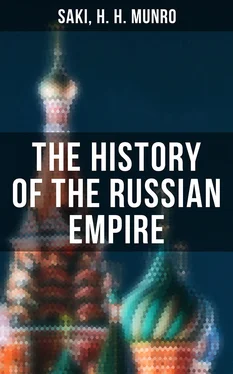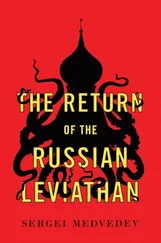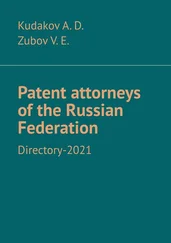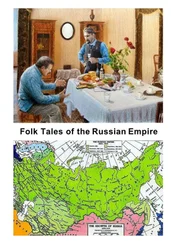Array Saki - The History of the Russian Empire
Здесь есть возможность читать онлайн «Array Saki - The History of the Russian Empire» — ознакомительный отрывок электронной книги совершенно бесплатно, а после прочтения отрывка купить полную версию. В некоторых случаях можно слушать аудио, скачать через торрент в формате fb2 и присутствует краткое содержание. Жанр: unrecognised, на английском языке. Описание произведения, (предисловие) а так же отзывы посетителей доступны на портале библиотеки ЛибКат.
- Название:The History of the Russian Empire
- Автор:
- Жанр:
- Год:неизвестен
- ISBN:нет данных
- Рейтинг книги:3 / 5. Голосов: 1
-
Избранное:Добавить в избранное
- Отзывы:
-
Ваша оценка:
- 60
- 1
- 2
- 3
- 4
- 5
The History of the Russian Empire: краткое содержание, описание и аннотация
Предлагаем к чтению аннотацию, описание, краткое содержание или предисловие (зависит от того, что написал сам автор книги «The History of the Russian Empire»). Если вы не нашли необходимую информацию о книге — напишите в комментариях, мы постараемся отыскать её.
The Rise of the Russian Empire is a historical study on Russian history, written by Hector H. Munro. The Book covers the period from the 9th century and the dawn of Russian empire, to 17th century and the rise of the Romanov dynasty.
The History of the Russian Empire — читать онлайн ознакомительный отрывок
Ниже представлен текст книги, разбитый по страницам. Система сохранения места последней прочитанной страницы, позволяет с удобством читать онлайн бесплатно книгу «The History of the Russian Empire», без необходимости каждый раз заново искать на чём Вы остановились. Поставьте закладку, и сможете в любой момент перейти на страницу, на которой закончили чтение.
Интервал:
Закладка:
By these successive steps Oleg had brought himself nigh upon Kiev, the headquarters of the rival principality, which was possibly the object he had had in view from the commencement of his southward march. For to the rising Russ-Slavonic State Kiev was at once a menace and an injury; not only did it offer an alternative attraction to the Norsemen pouring into the country, the natural reinforcements of Oleg’s following, but its separate existence cut short the expansion of the northern territory, and, above all, hindered free intercourse with Byzantium and the south. To the sea-rovers, reared among the rude and penurious lands that lay dark and uncivilised between the Baltic and the Arctic Sea, Byzantium was a dazzling and irresistible attraction; rich beyond their comprehension of riches, luxurious to a degree unknown to them, renowned for everything except renown, she seemed a golden harvest ripe for the steel of the valorous and enterprising. Between this desired land and the Novgorodian principality the territory of Askold presented a vexatious obstacle, and it was inevitable that the sagacity of Oleg should aim at its destruction. At the same time it was understandable that he should seek to avoid an armed conflict with his fellow-countrymen, the Varangians of Kiev, and to effect his purpose by stratagem rather than by force. To this end he approached the town, laid an ambuscade on the banks of the Dniepr, and in the guise of a trader travelling from Novgorod to Byzantium, sought speech with the Kievian rulers. Askold and Dir came out unwittingly to see this wayfarer, and found no man of wares and whining suppliance; found rather one whose face they well knew, and with him a small lad whose significance was swiftly made plain to them. “You are not of the blood of princes,” cried a voice of triumph and boding in their ears, “but here behold the son of Rurik.” And therewith rushed out the hidden ones and slew the unsuspecting chieftains. And in guerdon of this stroke Oleg was accepted as sovereign by the people of Kiev, the Russian State was solidified, and the supremacy of Rurik’s dynasty received a valuable recognition.
The town of Kiev, advantageously situated at a pleasant elevation above the west bank of the Dniepr, and commanding the waterway to the coveted south, compared favourably with Novgorod, built among the flat marshes that bordered Lake Ilmen and surrounded by the Finn-gripped coasts of Ladoga. The advantages of the former were not lost upon its conqueror, who saluted it with the title of “mother of all Russian cities” (so the Chronicles), and thenceforth it became the capital of the country. It was now necessary to secure the connection between the newly-won territory and the districts lying to the north. West and north of Kiev dwelt the Drevlians, a fierce and formidable Slavic tribe, whose country was fortified by natural defences of forest and marsh. Against them Oleg turned his arms, and once more victory went with him; the Drevlians, while retaining their own chieftain, were reduced to the standing of vassals, and an annual tribute of marten and sable skins was imposed upon them. Within the next two years the Russian ruler completed the subjugation of the Sieverskie and enthralled the remaining lands of the Krivitches, both of which tribes had hitherto owned allegiance to the Khazars. The growing Russian dominions were now put under a system of taxation, the sums levied being devoted in the first place to the payment of the Varangians in the Prince’s service. The contribution of Novgorod was assessed at the yearly value of 300 grivnas , a token of its substantial footing at this particular period.
It was about this time that the Ougres or Magyars, the ancestors of the modern Hungarians, squeezed out of their Asiatic home by the pressure of the Petchenigs, burst through the Khazar and Kievian territories and settled themselves in Moldavia and Wallachia, and finally in Hungary. Their passage through the Dniepr basin-land would scarcely have been undisputed, and the Magyar Chronicles speak of a victory over Oleg; the Russian chronicler is silent on the subject. This scurrying horde of nomad barbarians, unlike the Avars who preceded them, or the Petchenigs and Kumans who followed in their wake, crystallised in a marvellously short space of time into a civilised European State, and became an important neighbour of the Russian principality.
In 903 the young Igor was mated to a Varangian maiden named Olga, who, by one account, was born of humble parents in the town of Pskov and attracted the Prince by her beauty. Other accounts make her, with more probability, a near relative of the Regent, of whose strength of character she seems to have inherited a share.
In 907 Oleg was in a position to put into practice a project which had probably never been lost sight of, the invasion, namely, of the Byzantine Empire, including an attack on Constantinople itself, a project dear to the Russian mind in the tenth century as well as in later times. His footing differed essentially from that of Askold and Dir in their attempt at a like undertaking. No longer the leader of a mere troop of adventurers, Oleg swayed an army inspired by a long series of successes and confident in the sanction and prestige of the princely authority. Slavs, Finns, and Varangians were bonded together in a representative Russian army, trained, disciplined, and, above all, reliant on the ability of their captain. In their long, light barques they went down the Dniepr, hauling their craft overland where the rapids rendered navigation impossible, and thence emerged into the Black Sea; the boats were escorted along the river-banks by a large body of horsemen, but the Chronicle does not tell whether this branch of the expedition made its way through Bessarabia and Bulgaria into the Imperial territory, and probably it only served to guard the main body from the attacks of hostile tribes in the steppe region. Arrived in the waters of the Bosphorus the invaders landed and ravaged the country in the vicinity of Constantinople, burning, plundering, and slaughtering without hindrance from the Greek forces. Leo VI., “the Philosopher,” shut himself up in his capital and confined his measures of defence to placing a chain across the entrance of the harbour. So much had the Eastern Empire become centralised in the city of Constantinople, that it was apparently a matter of small concern if the very suburbs were laid waste, or else Leo was waiting with philosophic patience for a supernatural intervention. The Virgin, however, not obliging with another tornado, the invaders turned their impious arms against the city itself. According to popular tradition, Oleg dragged his boats ashore, mounted them on wheels, spread sail, and floated across dry land towards the city walls. Possibly he attempted the exploit, successfully carried out some five hundred years later by Sultan Mahomet II., of hauling his vessels overland into the waters of the harbour, a labour which would be facilitated by the lightness and toughness of the Russian craft. At any rate the effect of the demonstration was salutary; the Emperor, alarmed at such a display of energy, determined to come to terms with his barbarous enemy, first, however, the Russian chronicler alleges, trying the experiment of an offering of poisoned meats and fruits to Oleg and his warmen. 9A study of the history of Byzantium fully supports the likelihood of such a stratagem, which, had it succeeded, would have been hailed as a miraculous epidemic, sweeping the heathen away from the threatened city. The gift was prudently declined, and the more prosaic and expensive method of buying off the invaders had to be resorted to. The treaty which was concluded between the Greeks and the Russians shows that the latter were fully alive to the advantages accruing from a free commercial intercourse with Constantinople. Besides the levy of a fixed sum for every man in the invading fleet, contributions were exacted for Kiev and other towns under the Russian sway, which arrangement gave to all a share in the national victory. More solidly advantageous, under certain specified conditions, Russian merchants were to be permitted right of free commerce at Constantinople.
Читать дальшеИнтервал:
Закладка:
Похожие книги на «The History of the Russian Empire»
Представляем Вашему вниманию похожие книги на «The History of the Russian Empire» списком для выбора. Мы отобрали схожую по названию и смыслу литературу в надежде предоставить читателям больше вариантов отыскать новые, интересные, ещё непрочитанные произведения.
Обсуждение, отзывы о книге «The History of the Russian Empire» и просто собственные мнения читателей. Оставьте ваши комментарии, напишите, что Вы думаете о произведении, его смысле или главных героях. Укажите что конкретно понравилось, а что нет, и почему Вы так считаете.












